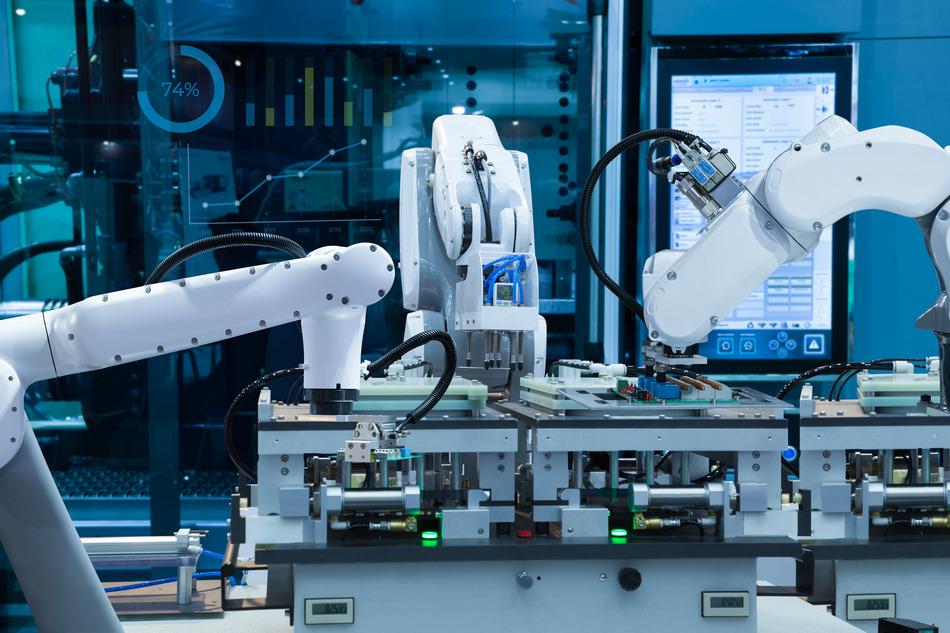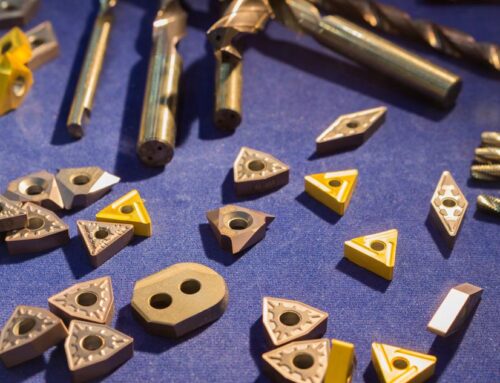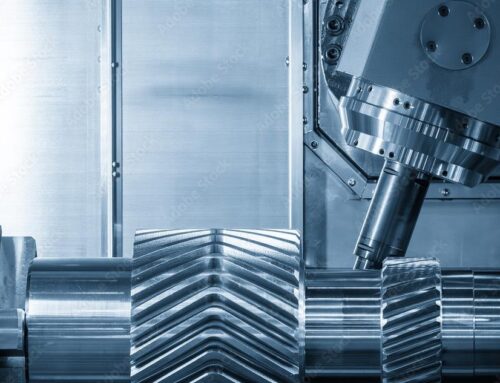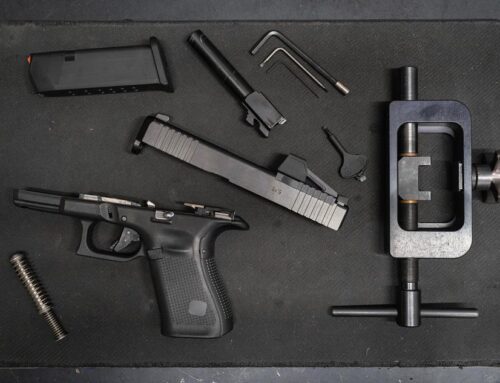Top CNC Brands for Longevity & Performance
Share Post

Top CNC Brands for Longevity & Performance
Choosing the right CNC brand is about more than just specs—it’s about long-term reliability, uptime, and minimizing repair costs. For production managers and repair leads, selecting the right brand at the start of a purchase can impact your facility’s performance for years to come.
From part availability and control software support to repair frequency and machine life, brand reputation carries real weight. In this guide, we’ll explore some of the top-performing CNC brands in the industry. We’ll also highlight what makes each brand stand out—whether you’re buying new or maintaining your current fleet.
Why CNC Brands Reputation Matters
Not all CNC machines are built the same. Some brands offer outstanding mechanical precision and exceptional support, while others may fall short when it comes to part availability or long-term maintenance planning.
The brand you choose will directly affect the way you manage repairs, order replacement components, and schedule preventive maintenance. Brand-specific repair availability is a major factor. If parts are hard to source or overly expensive, downtime can stretch out and delay production.
Brands with strong documentation and legacy support make it easier to troubleshoot issues and find repair guides—even for older models. Whether you’re adding new equipment or maintaining an existing line, brand reputation helps guide expectations for machine lifespan, technical support, and total cost of ownership. A trusted brand gives your team the tools and confidence they need to keep machines running smoothly.
What to Look For in a CNC Brand
When evaluating a CNC machine brand, there are a few key traits that directly influence longevity and repair simplicity:
Mechanical Precision and Build Quality
High-quality castings, bearings, and alignment standards make a major difference in machine wear and accuracy over time.
Ease of Maintenance and Part Availability
Machines designed for easy access to wear components and wiring simplify repair work. Readily available OEM or aftermarket parts help control repair timelines.
Strong Support Networks
Whether it’s domestic or global, responsive service is key. Brands with a robust dealer or support network minimize downtime.
Control Software and Updates
Software that is user-friendly, regularly updated, and compatible with modern systems allows smoother operation and faster troubleshooting.
Uptime Reputation
Brands with low failure rates and high customer satisfaction often have the best long-term performance—and they’re easier to resell or maintain.
These factors also affect repair accessibility. Machines with easy-to-navigate electrical layouts, clear service documentation, and modular components are faster (and cheaper) to service.
Brand Spotlights: Choosing the Right CNC for the Job
Each CNC brand offers unique advantages, and choosing the right one can dramatically affect uptime, part quality, and ease of maintenance. Here’s a closer look at what sets each brand apart.
🛠 Haas: Easy to Learn, Easy to Maintain
Haas machines shine in environments that need vertical machining centers (VMCs) or dependable turning centers. They’re especially great for shops that value fast onboarding, as the control systems are intuitive and user-friendly. These machines also provide excellent value for long-term users by minimizing downtime, simplifying operator training, and offering a wide range of configuration options. For shops looking to expand or invest in reliable mid-range equipment, Haas stands out as a proven choice with strong support and affordable parts.
⚙️ Mazak: Precision Meets Complexity
Mazak machines are built for complex multi-axis machining and automated workflows. They’re a top choice for applications that demand accuracy, repeatability, and seamless integration with advanced manufacturing systems. These machines offer robust control platforms and are engineered for durability in high-spec environments. With a reputation for smooth part finishes, long service life, and automation-ready design, Mazak continues to lead in sectors where precision is non-negotiable. Their technology investments make them a smart pick for scaling high-end production.
🔧 Okuma: Heavy-Duty and Highly Accurate
Okuma excels in environments where thermal stability and high-torque machining are essential. Their proprietary OSP control system delivers smooth operation and high precision while simplifying complex programming. These machines are built for long production runs and heavy-duty material applications, with torque, rigidity, and stability that support consistent output. Okuma’s commitment to mechanical excellence and integrated software solutions means lower error rates, smoother workflows, and a longer equipment lifespan—especially in facilities pushing demanding tolerances.
✈️ DMG Mori: The Gold Standard in Precision
DMG Mori machines are ideally suited for producing high-precision parts for aerospace, defense, and medical industries. Known for their advanced 5-axis capability, they can handle complex geometries, tight tolerances, and ultra-smooth finishes. These machines are often deployed in cleanroom or climate-controlled environments where even microscopic variation matters. With high-speed spindles, rigid construction, and intelligent software integration, DMG Mori delivers unmatched accuracy and part quality. Though they require expert service, the performance payoff is substantial.
🔩 Doosan / Hyundai WIA: Durable and Versatile
Doosan machines are rugged, reliable, and ideal for production shops that demand consistent daily performance. They’re especially strong in turning applications and horizontal machining environments, handling tough materials like cast iron and steel with ease. Built to last and engineered for repeatability, Doosan machines thrive in medium to large shops looking to expand throughput without sacrificing durability. Their robust frames and smooth motion control make them a favorite for long runs and general-purpose applications alike.
🟡 FANUC Robodrill: Speed in Small Packages
FANUC Robodrill is a top performer in environments where speed and small part precision are essential. These machines are widely used in electronics and aluminum production, where short cycle times and high-volume output are critical. Compact in size and highly efficient, Robodrill units integrate easily with existing systems and provide lightning-fast tool changes. Built around the ultra-reliable FANUC control platform, they deliver performance that belies their footprint—perfect for lean production cells and space-conscious shops.
💡 Hurco: Prototyping Power and Flexibility
Hurco machines are designed for shops that specialize in prototyping, custom parts, or rapid production changes. Their conversational programming interface makes them ideal for small teams or job shops that want to minimize setup time and boost part flexibility. Quick to learn and easy to operate, Hurco CNCs offer a solid mix of power and precision for short runs or shifting workflows. Their compact designs and strong domestic support network also make them a favorite among independent machinists.
⚙️ Brother: Compact, Fast, and Efficient
Brother CNC machines are built for fast production of small parts, particularly in automotive or electronics manufacturing. Known for their speed and low energy consumption, they excel in high-output environments with tight tolerances and demanding schedules. With fast acceleration, short tool change times, and a space-saving footprint, Brother machines are an ideal solution for shops with limited floor space and high production targets. They’re also easy to maintain and operate, making them a cost-efficient long-term investment.
How Brand Affects Long-Term Maintenance Costs
A CNC brand isn’t just about what you get today—it’s also about how you’ll maintain that machine five, ten, or even fifteen years down the line. Some brands are known for keeping part prices competitive and offering modular designs, which make replacement and service easier.
Others invest heavily in backward compatibility, ensuring that even legacy machines receive support, firmware updates, and replacement components. This is particularly important in industries that rely on long-term capital equipment.
Control systems also matter. Brands like Haas and Fanuc offer streamlined diagnostics, making it faster for techs to find and fix problems. Other brands may require more involved troubleshooting processes that increase repair time. Additionally, cable routing, spindle motor access, and control box layout all contribute to how easily your maintenance team can get machines back online.
How to Choose the Right CNC Brand for Your Facility
Choosing a CNC brand isn’t just about technical specs—it’s about aligning your machines with your team, your workflow, and your long-term production goals. Whether you specialize in sheet metal fabrication, CNC milling, or general-purpose CNC machining, the right brand can directly affect everything from efficiency to serviceability.
Match Machining Solutions to Your Workflow
Start by identifying the type of machining solutions your shop relies on daily. If your facility runs high-speed cutting machines that demand pinpoint accuracy—like those used in aerospace or medical part production—you’ll benefit from highly precise machines with stable platforms and strong numerical control systems. Brands like DMG Mori and Okuma are top-tier for this kind of cutting edge performance.
For facilities focused on smaller production runs, custom jobs, or flexible CNC routers, brands like Haas or Doosan might be a better match. Their machining centers offer the right blend of versatility and affordability—ideal for shops that need reliable machine tools capable of shifting between materials or parts without extensive reprogramming.
The type of control machining systems your operators are comfortable with also matters. Brands with intuitive interfaces and consistent software updates can cut training time, reduce mistakes, and ensure smoother adoption across your team.
Factor in Industry Specialization
While many CNC machining brands claim to serve a wide range of industries, some clearly specialize. Matching your machine to your market sector is crucial:
- Automotive & Electronics: FANUC Robodrill and Hyundai WIA are known for efficient, fast-paced CNC routers and milling capabilities.
- Aerospace & Defense: Mazak, Okuma, and DMG Mori provide the rigidity and consistency needed for structural components and sheet metal fabrication with complex geometries.
- Medical & Micro-Components: Matsuura and Kitamura are go-to brands for shops needing ultra-precise machine tools that can consistently meet tight tolerances.
- General Manufacturing in the United States: Haas and Doosan remain trusted choices across job shops for their value, flexibility, and strong support infrastructure.
Don’t Overlook Support & Availability
Whether you’re investing in advanced manufacturing technology or maintaining legacy machining centers, service and support matter—especially in the United States, where downtime can seriously impact delivery schedules. Brands with strong local networks and accessible parts help minimize disruptions, while those with difficult-to-source components may add cost and delay when problems arise.
Responsive support, available documentation, and qualified technicians can be just as important as spindle speed or torque—especially when your shop runs around the clock.
Know the Brand, Extend the Lifespan
The CNC machine brand you choose will affect more than your machining capabilities—it determines your repair costs, uptime reliability, and ease of service over the life of the equipment.
Whether you’re investing in a new model or comparing how your current machine measures up, understanding brand-specific traits can help you make a smarter decision
📞 Contact In-House CNC today at (951) 540-4820 for support on any major CNC brand, from legacy machine repairs to preventive maintenance plans.



